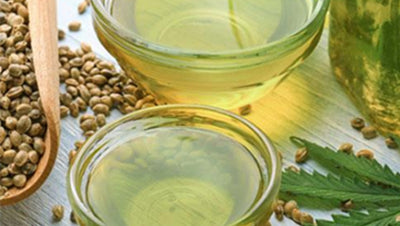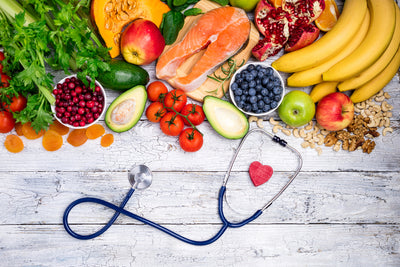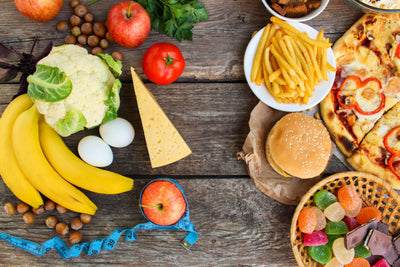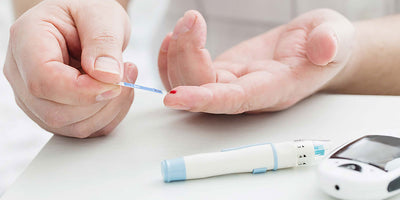
How to Fight Off a UTI
HOW TO FIGHT OFF URINARY TRACT INFECTION AS FAST AS POSSIBLE
Urinary tract infections can be extremely uncomfortable and easily ruin your week. I’ve put together a series of recommendations on how to go about your time with a UTI.
As our body will do its best to fight off the infection, we want to give it all the help we can to make the process as fast as possible.
If you act early, here is a series of treatment steps and recommendations you can follow to help treat a urinary tract infection before it gets out of control and you have to resort to harmful antibiotics.
Step 1: Eliminate sugar and refined starch
Step 2: Eliminate foods which can potentially irritate the urinary tract
- Caffeinated, carbonated and acidic beverages
- Alcohol
- Acid foods
- Spicy foods
- Artificial sweetener
Step 3: Hydrate and boost alkalinity
- Drink plenty of water
- Eat plenty of green leafy vegetables
Step 4: Build up your natural defence force
- Prebiotics
- Dark berries and their juices (unsweetened)
- Herbal and green tea
- Fermented foods
- Garlic and onion
- Mild spices
Step 5: Supplement support
- D-mannose
- Probiotics
- Vitamin D, C and Zinc
- Baking soda
- Medicinal herbs
Combining as many of these steps as you possibly can within 48 hours of developing a urinary tract infection will help your body to a speedy recovery.
What can I do with my diet?
Good nutrition plays an important role in not only managing symptoms but also in strengthening your immune system. A strong immune system supported by the right nutrients and balance of healthy gut bacteria is important for reducing the likelihood of ongoing or repeat infections.
We’ve developed your UTI support blueprint for minimising pain and discomfort and for supporting your body’s natural defences. Over this initial short period, it’s about altering the urinary tract environment making is less favourable for bacteria to grow. Once symptoms improve, it’s then about focusing on building up your immune system to continue fighting residual infection and prevent reinfection.
Step 1: Eliminate sugar and refined starch
It is best to avoid sugar and refined starch totally when in the midst of a UTI because certain bacteria use sugar for food. Avoid refined sugars and white flour in foods such as cakes, biscuits, sweet drinks, sugary food, dried fruit, chips, crackers, pasta, and noodles. These foods create an environment in which bacteria thrive and multiply, making infection more likely.
Step 2: Eliminate foods which can potentially irritate the urinary tract
Foods that have a high acid content or contribute to forming acidic urine can make your symptoms worse by irritating the bladder and urinary tract. Eliminate the following foods for the next 24-48 hours while experiencing UTI symptoms.
- Caffeinated, carbonated, or acidic beverages – Coffee, black tea, cacao, and dark chocolate can be excellent sources of antioxidants are associated with many health However, caffeine found in these foods is known to cause bladder irritation and worsen urinary tract symptoms. Other carbonated beverages such as sugar-sweetened or artificially sweetened fizzy drinks and sparkling water should be avoided. Studies have suggested some of these acidic beverages cause increased bladder pressure and urinary urgency.
For the next two days, swap out caffeinated hot drinks for herbal, green, white, or fruit teas. A squeeze of lemon, lime, orange, or grapefruit in icy water makes a refreshing cold drink without significantly influencing urine acidity. Be mindful of the sugar content in fruit juices as increased blood sugar can promote bacterial growth.
- Alcohol – Alcohol, like caffeine, can stimulate the bladder and act as a natural diuretic. Also by increasing urinary frequency, dehydration can lead to the urine becoming concentrated with salts that irritate the bladder and aggravate symptoms. Many alcoholic drinks also contain plenty of sugar which can play a role in feeding the bacterial infection.
- Food with a high potential acid load (PAL) – Red meat, Fish, Chicken, Eggs, Dairy products, and Grains – High protein animal products as well as grain are known to influence the pH of urine making it more acidic. Eating an unbalanced quantity of these foods with a high PAL may irritate the bladder and worsen UTI symptoms. Lighten off these foods for the next two day and replace them with a bounty of colourful You don’t have to go totally meat, dairy, and grain free, but choose less. Picture animal products or grains as a side dish to your vegetables which balance out their PAL.
- Spicy food –. Hot spices are thought to cause bladder irritation and worsen UTI symptoms in some people, however, current evidence to support this notion is limited. While you may not need to completely relinquish all flavour from your diet, it might be worthwhile to temporarily cool off any extra hot sauce and chillies while managing symptoms.
- Artificial Sweetener – Chemically produced sweeteners should be totally avoided. They offer no nutritional value and may increase activity in the muscles around the bladder and worsen urinary urgency symptoms.
Step 3: Hydrate and boost alkalinity
- Water – Drink more water and then drink more. Maintaining good hydration and high urine output may feel counterintuitive when every time you pass urine you’re reminded of the burning pain. However, continually flushing the bladder with dilute urine helps to flush bacteria outwardly and making it more challenging for bacteria to climb the urinary tract walls.
- Green leafy vegetables – Load up on the dark leafy greens cooked, raw in salads, or even juiced. Greens such as spinach, silverbeet, kale, parsley, watercress, lettuces, and cabbage provide many nutrients for supporting immune health. They also have an alkaline effect on the urine which can help to improve symptoms. For an additional alkaline boost, prepare an instant green juice with a teaspoon of organic barley grass powder and a squeeze of lemon juice.
Step 4: Build up your natural defense force
- Prebiotics – Polyphenols from bright and dark coloured vegetables, fruit, and herbs have a powerful effect on building the healthy bacteria in the gut. Prebiotics encourage friendly bacteria to grow which stimulate defenses against potentially harmful bacteria. Over the next three days while limiting the foods listed earlier, there will be plenty of room on your plate to fill with bright coloured vegetables such as red cabbage, beetroot, carrots, broccoli, and dark leafy greens. That’s only naming a few – aim to eat a rainbow of fresh produce daily.
- Dark Berries and Their Juices – Dark berries such as blueberries, blackberries, black currants, and cranberries also contain powerful polyphenols, are low in sugar, and may contain small amounts of naturally occurring D-mannose. Swap out higher sugar and acidic fruits for these to have in a smoothie or as a snack with a drizzle of coconut cream.
- Herbal and Green Tea – Herbs and spices are fantastic for creating a plant-powered brew. Whether it’s green, white, oolong tea, freshly picked Kawakawa leaves, or a homemade turmeric latte, a little witches brew can go a long way for boosting immune health.
- Fermented foods – After the first 24 to 48 hour window and as symptoms become manageable, start introducing natural sour yoghurt or milk kefir to build up natural bacterial defenses. As an alternative to dairy coconut yoghurt, water kefir, coconut water kefir, and fermented vegetables are also excellent sources of those protective Lactobacilli bacteria.
Research has shown that women how regularly consume fermented milk products have a reduced risk of recurrent UTI infections. However, bear in mind dairy products can contribute to increasing urine acidity and best used as prevention once the symptoms of infection have cleared.
- Garlic and onions – Mix red onion through a leafy salad, top with a fresh garlic and herb dressing to top a leafy, and roast a bulb of garlic with a few onions for dinner. These pungent roots have antimicrobial properties and unique compounds known to wipe out bacteria.
- Spices – Contrary to hot spices which may be off the menu for a couple of days, milder spices such and cinnamon, ginger, and turmeric, or a mild garam masala all pack medicinal value. Spices carry plenty of antioxidants and phenolic compounds which support the immune system. Cinnamon is known to have antibacterial activity against E. coli and may be beneficial for lowering blood sugar. While clinical evidence to support the use of cinnamon for UTI’s is lacking, adding some sweet spice to your food and hot drinks can’t pose much risk of harm.
Step 5: Supplement Support
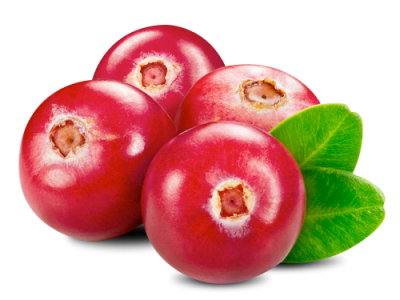
- D-Mannose – D-Mannose is a naturally occurring sugar that is found in certain fruits with cranberries being the most commonly known source. It works causing bacteria them to stick to each other and preventing them from clinging to the walls of the urinary tract. The D-mannose coated bacteria can then be easily be passed through the urine preventing infection progression.
The effectiveness of D-mannose for treating a UTI relies on the premises that most UTIs are caused by E. coli bacteria which climb up through the urinary tract using finger-like (feels like claw-like!) projections.
For few cases where a UTI is caused by bacteria other than E. coli or a combination, supplements which help disrupt biofilms can be useful. We suggest taking your health care practitioner if you have chronic or recurring infections which may not be E. coli-related.
- Probiotics – Load up on the helpful protective bacteria with a probiotic containing both a combination of Lactobacilli and Bifidobacteria species. Lactobacillus rhamnosus and Lactobacillus reuteri strains have been shown in research to be most effective for treating and preventing UITs. The delicate balance of which specific good bacteria is unique to each individual and new understanding of the each particular species is ever growing. Watch this space.
- Vitamin D – Vitamin D plays an important role in proper immune function, and it’s not surprising that levels in the blood are associated with the increased severity of UTI symptoms. Have your vitamin D levels checked out and supplement as needed. Also, be sure to maintain good sun exposure year-round to keep vitamin D levels topped up.
- Vitamin C and Zinc – Load up on these immune boosting nutrients for additional infection-fighting support. A natural food based vitamin C, liposomal, or sodium ascorbate is preferred as pure ascorbic acid may influence urinary acidity.
- Baking Soda – A teaspoon baking this dissolved in water is an easy trick for increasing urine alkalinity which may help to ease symptoms.
-
Medicinal herbs – Herbal medicine can play a role in urinary tract health by offering anti-inflammatory and antiseptic qualities. Some of the following herbs from a reputable supplement supplier in appropriate dosages may be beneficial.
- Cranberry
- Golden seal
- Echinacea
- Olive leaf
- Barberry and Bearberry
- Marshmallow
- Buchu
- Cornsilk
- Neem
- Garlic
- Horseradish
- Nasturtium
- Couch grass
- Nettle
Ladies only
- Hygiene – Don’t wash your vagina. Stay away from douches, wipes, and special soaps. These can disturb natural secretions and vaginal bacteria. Use only pure water in the shower for personal hygiene. After using the bathroom, wipe from front to back to prevent bacteria from being carried closer the urinary
- Urinate when you need to – Avoid holding it in as it can be easier for bacteria to grow in a full bladder. Be sure to urinate after sexual intercourse too.
- Choose organic down there – Switch your menstrual products 100% organic cotton to avoid any nasty pesticides or bleach which can disturb the vaginal microbiome making you more susceptible to UTIs.
What is a urinary tract infection?

Urinary tract infections (UTIs) are caused by the migration of bacteria up the urinary tract. About 90% of UTIs are caused by E. coli bacteria which use claw-like extensions move upward through the urinary track.
Common symptoms associated with a UTI include primarily pain or burning during urination, the need to urinate more often than usual, and a feeling of urgency during urination. The progression of a UTI may also lead to blood or pus developing in the urine, cramps or pain in the lower abdomen, chills or fever, strong smelling urine, pain during sexual intercourse, as well as nausea or vomiting. If you experience any of the later symptoms, it’s important to consult your doctor as if the infection isn’t managed it can continue to infect the kidneys and create lasting damage.
Who is at risk, what causes a UTI
Urinary tract infections are ten times more common among women than men. Irritation from frequent or intense intercourse as well as the use of irritating products, such as harsh skin cleansers or contraceptives, such as diaphragms and spermicides can increase the risk of a UTI. Hormonal changes in pregnancy and perimenopause, as well as birth control pills, also play a role in influencing the health of the urinary tract in women.
Incontinence and having an indwelling catheter in place can also encourage the growth of bacteria. People with elevated blood sugar levels or diabetes are also at greater risk as high blood sugar creates an environment in which infectious bacteria can thrive.
Finally, anyone with a history of antibiotic use either from treating UTI’s of from other infections, there is an increased risk due to the effect antibiotics can have on our natural barrier of protective bacteria. If some friendly bacteria have been killed off by antibiotics, this can make one vulnerable to infection or re-infection following initial treatment.
While antibiotics certainly have a place in the medical treatment of infectious disease, there is growing concern about the frequent use of antibiotics for treating UTIs. The ongoing use of antibiotics is believed to lead to antibiotic resistance which can make further treatment with antibiotics less effective over time and therefore increasing the risk of ongoing infection.



